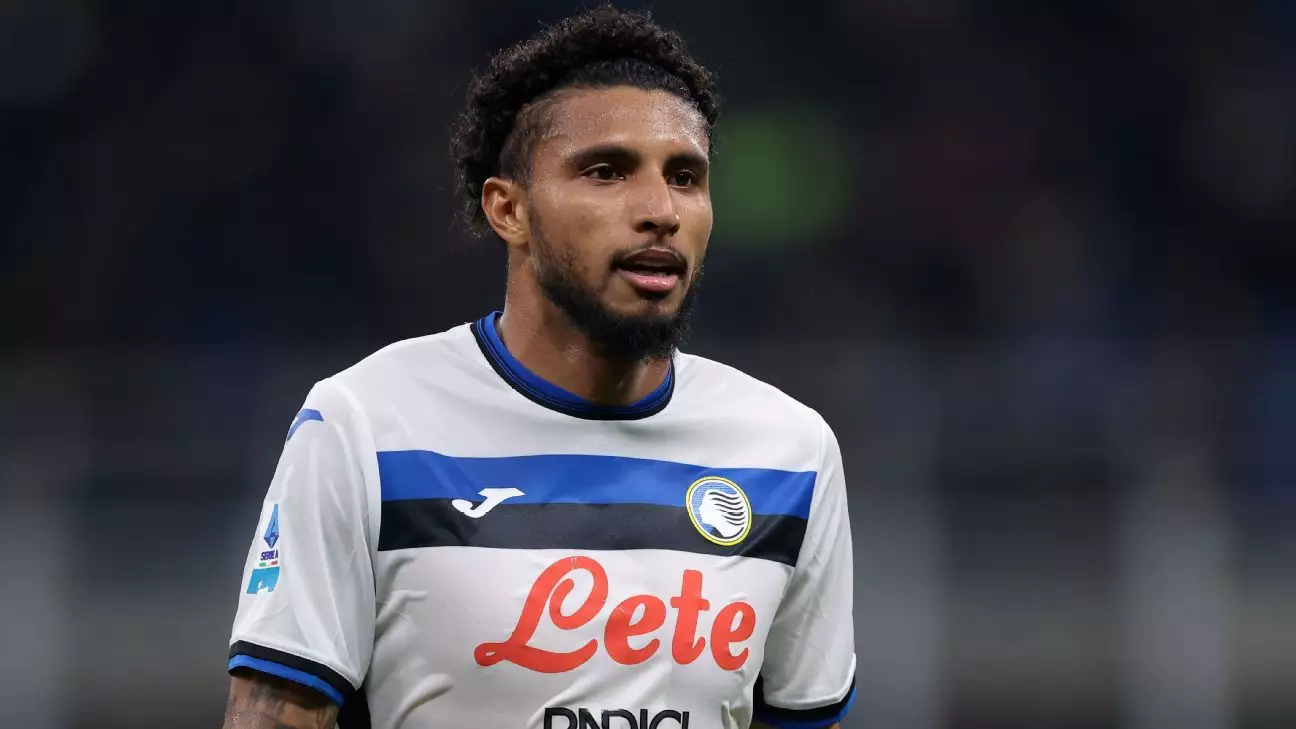In the ever-evolving landscape of football transfers, Manchester United stands at a pivotal crossroads as they aim to bolster their midfield with the signing of Atalanta’s promising talent, Éderson. The Brazilian midfielder, only 25 years old, has garnered attention for his dynamic playing style and technical prowess, leading United’s hierarchy to identify him as a crucial asset for the future. Speculation is rife that the club is not only reacting to concerns about Casemiro’s future but is also strategically planning to enhance their squad under the stewardship of manager Ruben Amorim.
The transition to potentially recruiting Éderson, however, poses significant challenges. With Manchester City also reportedly eyeing the Brazilian, the race to secure his signature highlights the fierce competition in the Premier League. Éderson is seen not just as a replacement but as a transformative figure who could breathe new life into United’s midfield, an area that has often been seen as a weak link in recent seasons. This scenario embodies the high stakes of modern football where strategic foresight and adaptability become indispensable.
Juventus’ Quest for New Firepower
As Juventus prepares for potential departures, including that of their star striker Dušan Vlahović, the club is diligently crafting a shortlist of suitable replacements. Among the names surfacing is Rasmus Højlund, currently making waves at Manchester United. The Bianconeri are not merely reacting to Vlahović’s uncertain future; they appear to be taking proactive steps to revitalize their attacking line-up after a season that has left much to be desired, currently languishing in fifth place—12 points adrift of the Serie A leaders.
The search for a replacement is underscored by Juventus’ need to avoid losing Vlahović on a free transfer by 2026. The potential recruitment strategies reveal a calculated initiative to not only fill gaps but to build a forward line that can compete at the highest levels in Italy and beyond. Højlund’s inclusion on their shortlist, alongside other talents like Wolverhampton’s Matheus Cunha, shows a willingness to invest in youthful, dynamic players who can inject speed and versatility into the team’s tactical framework.
Manchester City’s Young Talent Investment
Across Manchester, City’s ambitions are equally grand as they turn their gaze towards Paris Saint-Germain’s 19-year-old winger, Désiré Doué. Manager Pep Guardiola’s admiration for Doué is emblematic of a strategic shift focused on nurturing youthful prospects capable of long-term contributions to the team’s success. Having already sent scouts to evaluate his performance on several occasions, the Citizens are keenly aware that such talent comes with a hefty price tag—PSG is reportedly only willing to entertain offers starting at €100 million.
This potential acquisition reflects City’s broader strategy of not simply relying on established stars but investing in emerging talents that have dominated youth competitions. Doué’s signing would not only add depth to their attacking options but also align with the club’s philosophy of developing players through a world-class training regimen, creating a sustainable model for success in an increasingly competitive environment.
Future Prospects at Manchester United
In another intriguing development for Manchester United, they have also set their sights on Preston North End’s Freddie Woodman, a goalkeeper projected to be a valuable third-choice option. Woodman, who has impressed during his time at Newcastle United, becomes a focal point when considering squad depth as the club prepares itself for the grueling demands of another season. His potential availability as a free agent could pose a strategic advantage for United in maximizing their transfer budget while shoring up critical positions.
As teams engage in these calculated pursuits of talent, it becomes evident that the trends of both nurturing homegrown prospects and strategically acquiring seasoned players are pivotal in this new footballing era. With clubs like Manchester United and Juventus eyeing both instant impact players and ambitious talents, the transfer market remains a battleground of strategy where foresight and adaptability could very well decide the fortunes of these iconic clubs as they chase glory.

